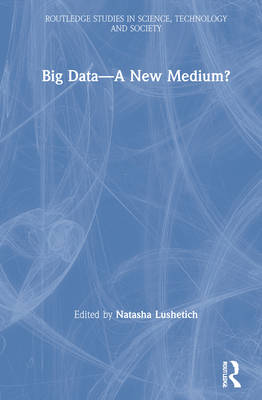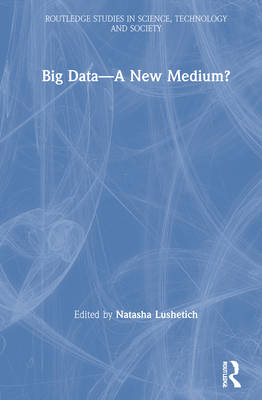
- Retrait gratuit dans votre magasin Club
- 7.000.000 titres dans notre catalogue
- Payer en toute sécurité
- Toujours un magasin près de chez vous
- Retrait gratuit dans votre magasin Club
- 7.000.0000 titres dans notre catalogue
- Payer en toute sécurité
- Toujours un magasin près de chez vous
Big Data--A New Medium?
Description
Drawing on a range of methods from across science and technology studies, digital humanities and digital arts, this book presents a comprehensive view of the big data phenomenon.
Big data architectures are increasingly transforming political questions into technical management by determining classificatory systems in the social, educational, and healthcare realms. Data, and their multiple arborisations, have become new epistemic landscapes. They have also become new existential terrains. The fundamental question is: can big data be seen as a new medium in the way photography or film were when they first appeared? No new medium is ever truly new. It's always remediation of older media. What is new is the medium's re-articulation of the difference between here and there, before and after, yours and mine, knowable and unknowable, possible and impossible.
This transdisciplinary volume, incorporating cultural and media theory, art, philosophy, history, and political philosophy is a key resource for readers interested in digital humanities, cultural, and media studies.
Spécifications
Parties prenantes
- Editeur:
Contenu
- Nombre de pages :
- 228
- Langue:
- Anglais
- Collection :
Caractéristiques
- EAN:
- 9780367333836
- Date de parution :
- 27-11-20
- Format:
- Livre relié
- Format numérique:
- Genaaid
- Dimensions :
- 156 mm x 234 mm
- Poids :
- 521 g

Les avis
Nous publions uniquement les avis qui respectent les conditions requises. Consultez nos conditions pour les avis.





